520 in China: From Romantic Gestures to Controversial Trends and Public Declarations
In China, May 20th, also known as "520," has become a significant day for expressing love and affection, thanks to its phonetic resemblance to "I love you" in Mandarin. However, recent social media activity on platforms like Weibo has showcased a different facet of this romantic day, turning it into an unexpected topic of controversy and debate. A popular hashtag making rounds on Weibo this year is #520垃圾桶# ("520 Trash Can").
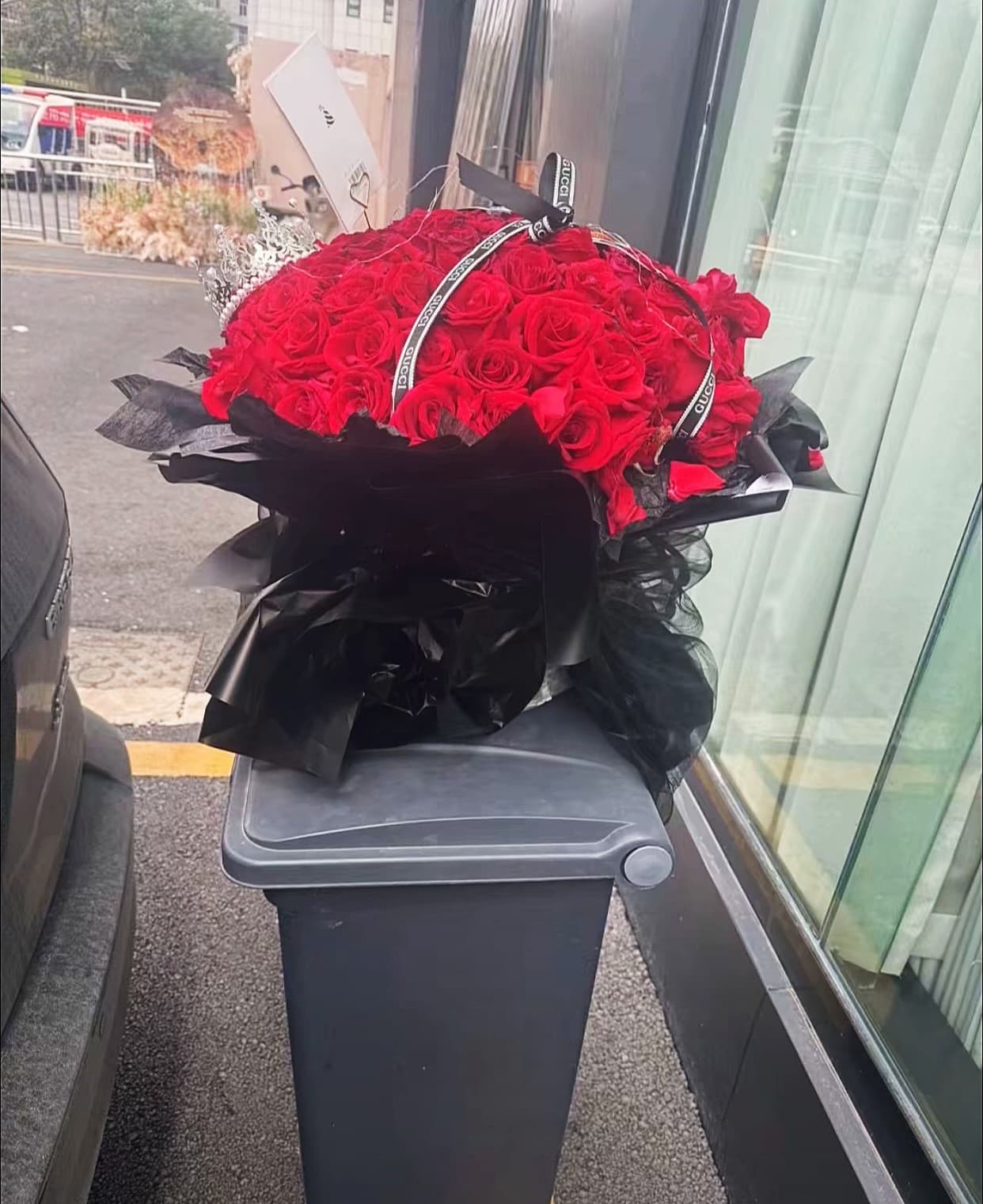
20 May 2024
It highlights a peculiar trend where many people discard flowers they received on this day into trash cans. Users have shared videos and images showing trash cans brimming with various types of flowers, transforming these receptacles into makeshift vases. One user commented, "Walking down the street, I saw trash bins filled with different kinds of flowers, but I've never seen carnations in the trash on Mother's Day. It's ironic that such a romantic day turns trash bins into treasure chests.
It's both pitiful and laughable! What kind of trend is this?" This sentiment captures the confusion and mixed feelings of many netizens. Another notable mention on Weibo was from a user who pointed out, "The biggest winner today is the trash can." This remark reflects a cynical view of the temporary and perhaps superficial nature of the romantic gestures typically associated with 520. The underlying implication is that the day, while celebrated with grand gestures, often lacks genuine, lasting emotional impact.
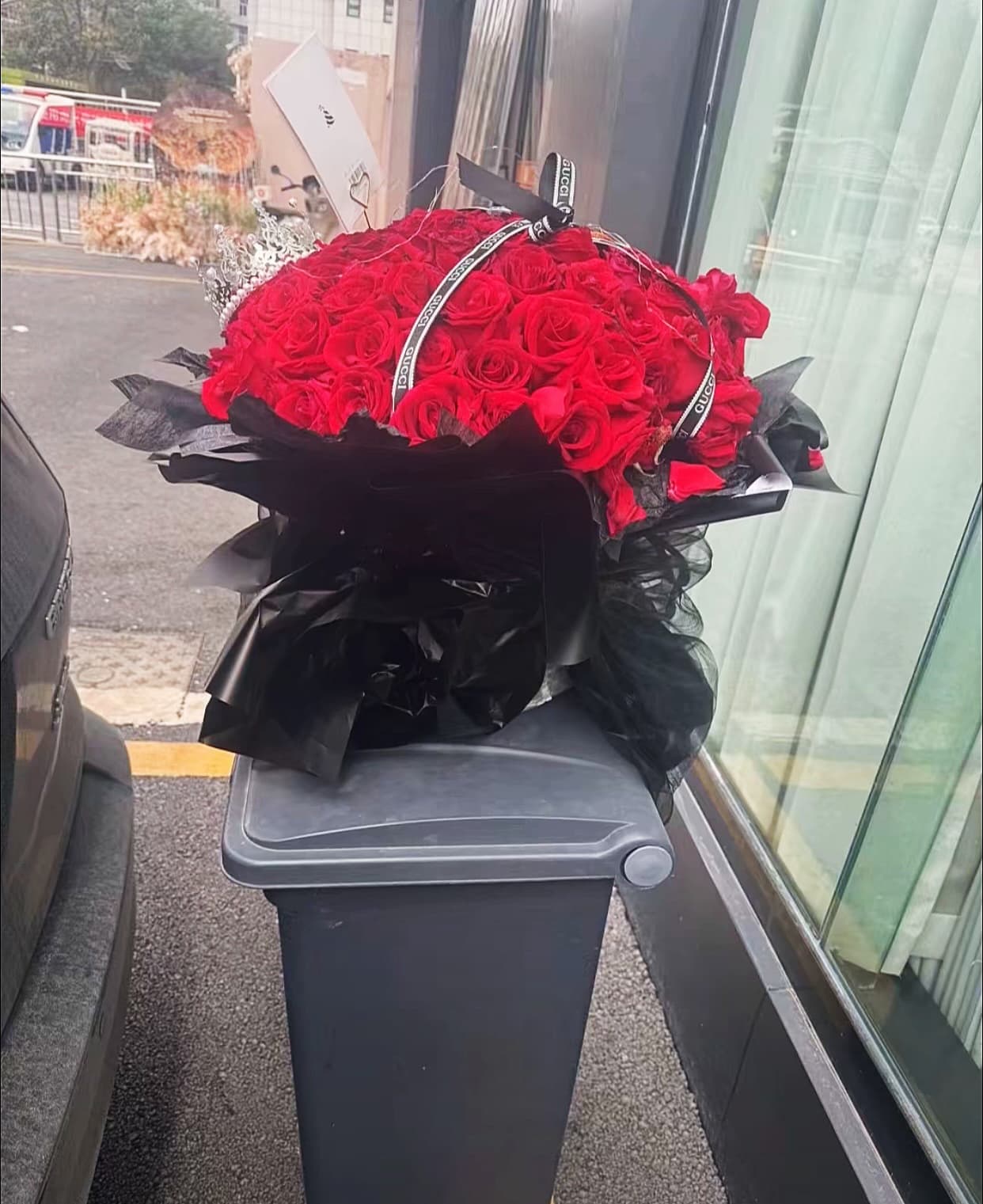
In addition to the floral controversy, 520 also saw a significant announcement from Chinese rock musician Wang Feng. Wang took to Weibo to publicly confirm his relationship with Li Qiao, a topic that had been subject to much speculation and rumors. In his lengthy post, Wang expressed frustration over the malicious rumors and falsehoods that had surrounded their relationship.
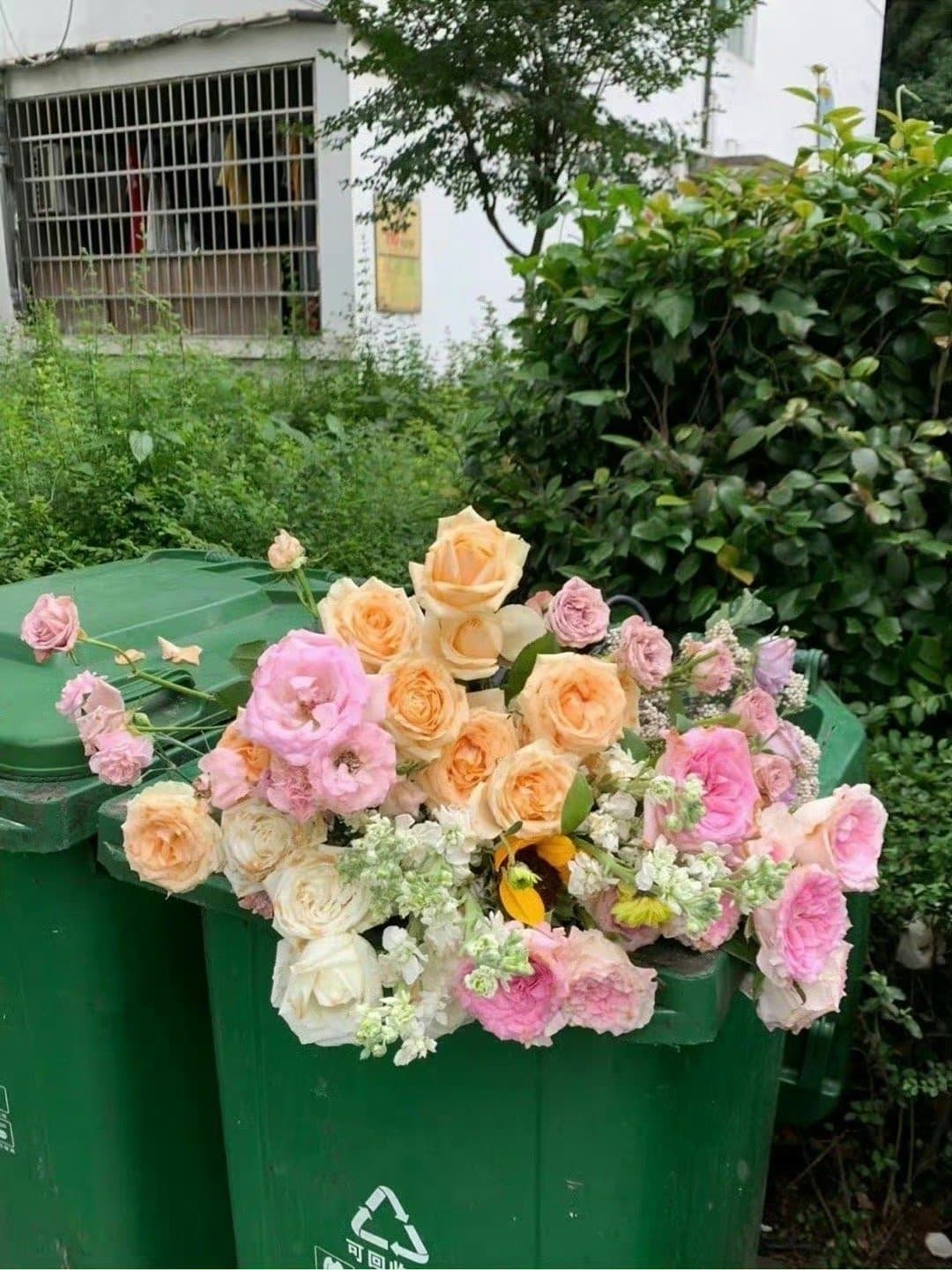
He stated, "For a long time, I have endured all kinds of distorted public opinion and slander to protect my family from harm. However, enduring did not result in understanding or a reduction in harm." Wang clarified that his previous marriage ended responsibly and that he only met Li Qiao after the divorce was finalized.

He also conveyed his intent to take legal action against those spreading false information. Li Qiao, also known as "Senlin Bei" on Weibo, had earlier addressed their relationship by commenting, "When I met him, he had been divorced for two months." This revelation was picked up by observant netizens and fueled further discussion.
One user reflected on Wang Feng's pattern of intense romantic relationships, noting, "I think Wang Feng provides a grand and intense kind of love in relationships. Whether it was with Zhang Ziyi or now with Senlin Bei, his gestures are always grand.
Such behavior can make people feel genuinely valued." However, Wang's public announcement also drew criticism, as some netizens felt that the timing and public nature of his declarations were performative. Another user commented, "Wang Feng has had a series of beautiful spouses. Publicly admitting his new relationship on 520 is quite bold, wishing them happiness."
520 wasn't solely about personal romance this year. The day also saw Chinese military and public service personnel sharing their unique expressions of love and commitment. Videos showcased soldiers and firefighters engaging in playful and heartfelt gestures, like forming hearts with their hands and sharing messages of love and solidarity. These posts were tagged with #520还得是兵哥哥的比心最硬核# ("520 Soldiers' Hardest Heart Gesture"), celebrating the day in a different, yet equally significant, context.
Moreover, 520 coincided with "Xiaoman," a minor solar term in the Chinese lunisolar calendar marking the beginning of the grain filling period. This alignment was poetically interpreted by many, with posts reflecting on the themes of growth, fulfillment, and budding love. "Xiaoman" symbolizes a period where grains begin to plump yet aren't fully mature, metaphorically resonating with nascent romantic relationships celebrated on 520. A user from Jiangsu posted, "Today, #小满遇上520#, in this season of abundance, may you find happiness and fulfillment." This dual celebration brought a sense of completeness to the day, intertwining natural cycles with human emotions.
As is often the case with social media-driven events, the reactions were diverse. Some embraced the day’s spirit with heartfelt messages and romantic gestures, while others used humor and irony to comment on the fleeting nature of such celebrations. A post read, "Happy 520!
Even if you don't have a boyfriend, give yourself some romance. How did you spend the day?" In conclusion, 520 in China is a multifaceted event that not only celebrates love but also brings to light various societal behaviors and attitudes. From discarded flowers in trash cans symbolizing ephemeral romantic gestures to high-profile personal announcements and uniquely cultural expressions of love, the day encapsulates a broad spectrum of human experiences and emotions. While the intention behind 520 remains to celebrate and express love, the manner in which it unfolds can often spark deeper reflections on the authenticity and nature of our emotional connections.
Share this article
Related Articles
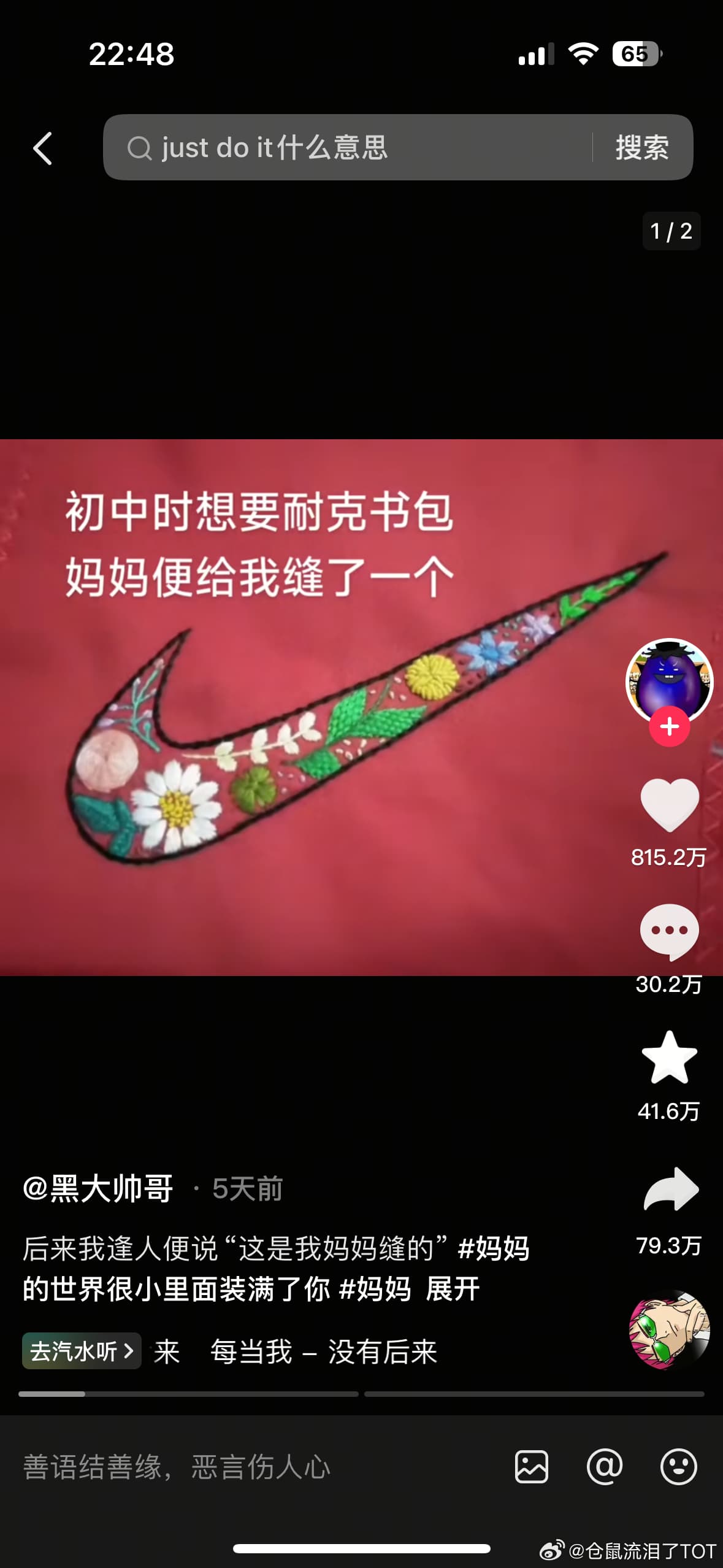
Mother’s Hand‑Stitched Nike Backpack Goes Viral, Showcasing Love, Craftsmanship and Brand Authenticity in China
By Trending on Weibo
Culture
15 Sept 2025
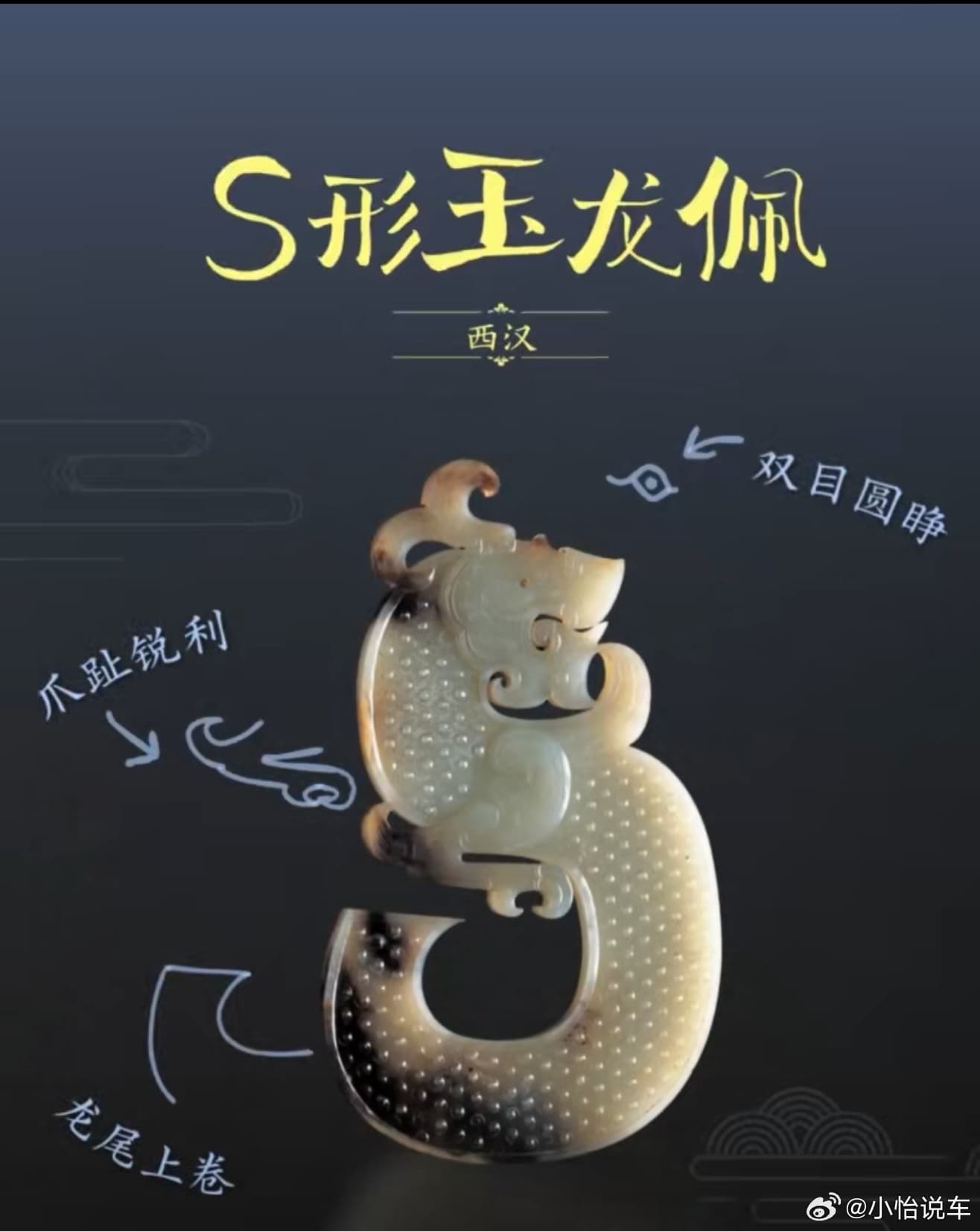
China’s “National Treasure Highlights” Campaign Turns Heritage Into Global Soft‑Power and Consumer Brand】
By Trending on Weibo
Culture
13 Sept 2025

Mystery Meme: Unraveling China’s “Dissected 14 People, Crumbled by a Letter” Phenomenon】
By Trending on Weibo
Culture
8 Sept 2025

Chinese Netizens Turn Blood Moon Into Viral “Too Abstract” Meme
By Trending on Weibo
Culture
8 Sept 2025

From Song Dynasty Verse to 2024 Drama: The Enduring Echo of “Rain‑Laden Bells” in Chinese Culture
By Trending on Weibo
Culture
8 Sept 2025